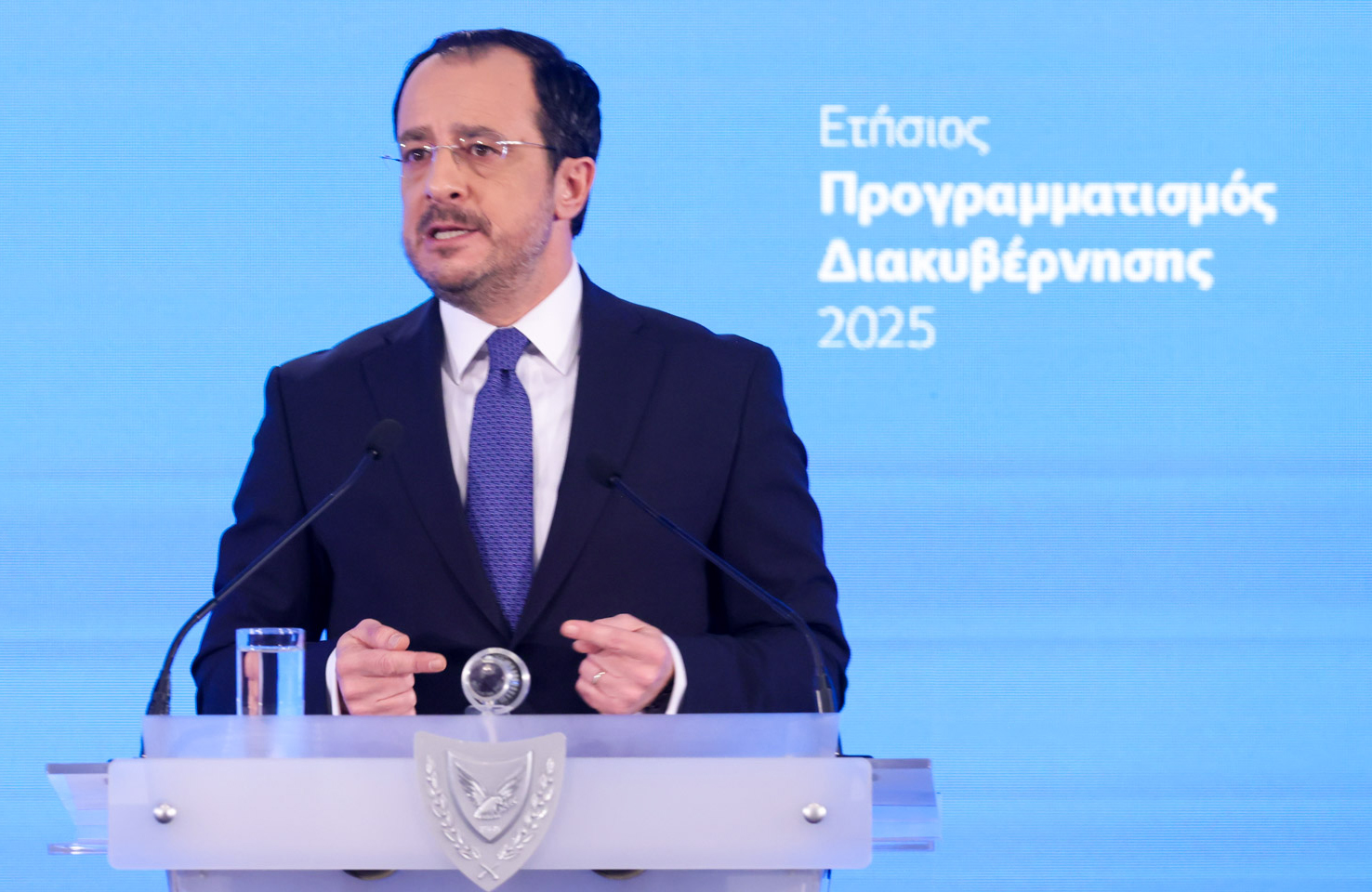There was an election character to President Nikos Christodoulides’ televised presentation of his government’s plans for 2025. He had invited ministers, state officials, senior civil servants and party representatives to the presidential palace to listen to his plans and promises giving the impression that he was launching an election campaign.
This was hardly surprising, considering the idea of an address to the country about the government’s plans for the year ahead is a Christodoulides invention, never practised by any predecessor for obvious reasons. A government’s work is ongoing and does not start in January and end in December as the president, for communications purposes, has decided.
After all, there is a state budget for the year and its presentation to the legislature gives a very good indication of the government’s plans. In fact, it is a much more accurate presentation because all the plans are written down and costed, in contrast to the vague generalities that made up Wednesday night’s presentation, in the name of transparency, effectiveness and accountability.
The five targets of the government for 2025 were the same as those for 2024, Christodoulides’ first full year in power. Had the government not pursued the growth of the economy in 2024? Had it not tried to bolster the sense of security of citizens, had it not expanded the “factors of power” and attempted to solve the Cyprus problem, had it not tried to reform institutions in 2024?
Is the digital transformation of the state only starting this year? Christodoulides said the state would introduce 60 new electronic services for citizens this year and also reduce bureaucratic delays, inadvertently reminding us of the very slow pace at which digitalisation of the state is taking place and that the reduction of bureaucracy is more a case of wishful thinking than policy planning. If the plan was to reduce bureaucracy the government would not be hiring more bureaucrats every year.
Like all his predecessors, Christodoulides placed great emphasis on the government’s spending plans. The government will be paying money to bailout victims, it will increase pay to public employees by ‘modernising’ CoLA, fund innovative products and services in technology, allocate more funds for housing assistance, offer incentives for the creation of theme parks, announce more subsidies for energy storage, pursue pension reform with the aim of offering ‘dignified pensions.’
Tax and pension reform is not something that is happening this year, as we were told that preparatory work had started last year. This shows how government work is ongoing and cannot be placed in annual packages presented at the start of each year. Improving the effectiveness of the police, which is one of the 2025 policies, should be an ongoing project as is the improvement of security which was also mentioned by the president.
In the end, the president’s presentation may have had the opposite of the desired effect. Three opposition parties – Akel, Disy, Greens – for example, highlighted the fact that his address was heavy on promises and declarations and rather light on actions and substance. This is the most common charge levelled against Christodoulides and Wednesday night’s presentation went some way in proving his critics have a point.






Click here to change your cookie preferences